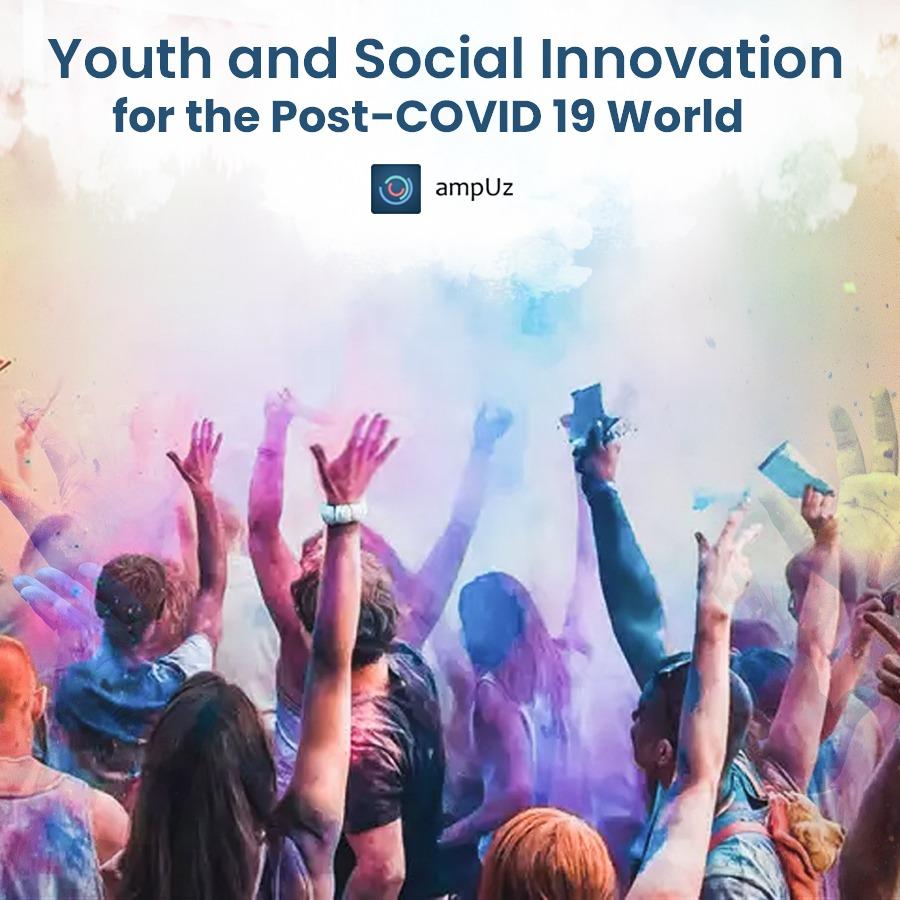
Youth and Social Innovation for the Post-COVID 19 World
Youth in 2020: Entering the Global Stage
It is a scary time to be a young adult. The climate crisis changing the world, at an unprecedented scale is a reality; COVID-19 has robbed a whole generation of milestones like graduation, and college tours, and we are in the middle of the largest civil rights movement since the 1960s. An entire generation of youth would be forgiven if they all went to their rooms and sulked. However, they are rising to the challenge all over the world.
The UN Sustainable Development Goals and the 2030 development agenda assign the challenges and responsibilities of global development in the hands of governments, as well as the private sector, and individuals. The global youth plays a vital role in achieving these goals, with youth-led organizations, like AIESEC positioning the SDGs front and center of their programming. 2020 is what it is, has forced us to take a long hard look at the road ahead and to acknowledge a profound fact: the world is never going to be the same again, and entrepreneurs need to not just recognize that, but also innovate in light of it.
The UN has recognized the global power of youth, which today constitute the largest generation of young people in history (1.8 billion). It also acknowledges the fact that 90% of them live in the Global South, which presents both an opportunity, and a challenge for youth-led innovation and social impact.
The vision behind the ‘2030 UN Youth Strategy’ is an admirable one: to create a world in which the rights of every young person are realized while empowering them to achieve their full potential. This is a strategy that recognizes and prioritizes the agency of the youth, which has so often been neglected in previous iterations of global development agendas.
The biggest opportunity for mobilizing the youth in the Global South lies in their proximity and understanding of global developmental issues on a grassroots level. For a lot of these young adults, sustainable development is more than a studied phenomenon – it is a lived experience.
Social impact boot camps, in recent years, have served as a useful tool to empower the youth to create change. They are accelerators and incubators that support young adults to develop social enterprises and business models that aim to scale social impact through innovative solution specific to their community needs. While we praise the wide net that can be cast through these boot camps, they cannot be the only and standard solution. Unique and locally specific solutions need to be created based on each population and demographic needs.
The position of the youth is unique. Youth are both agents of change and, in many cases, beneficiaries of social impact programs themselves. However, there is a risk that comes with prioritizing youth over experience. While the youth is the future, the goals of the global development agenda can only be achieved in collaboration across all ages, shades, and sizes. Only then can we expect a truly holistic approach that leverages both the energy of the youth and the experience of the generations that came before.
My critique of the UN Youth Strategy is consistent with my analysis of most large-scale development programs: there is a danger in seeing “the youth” as a homogenous group, and even higher risk in seeing the youth in the Global South as a homogenous group. This broad stroke approach enables for the specific needs, as well as specific local knowledge, to fall through the cracks. The second is a critique now sounding like a broken record: like most UN development agendas, the Youth Strategy is aspirational, overly broad, and possibly unmanageable.
Despite stated reservations, there is an opportunity to achieve successful outcomes through the Youth Strategy – and this lies in a decentralized approach. Great things can happen if each country has the freedom to adopt a localized approach to strategy deployment. The Youth Strategy should serve as a guideline, with implementation plans to be created locally. The youth living in a specific country should be engaged in the creation of these implementation plans, as its outcomes will directly impact them.
The strategy was released in 2018, and therefore its impact remains to be seen. Accordingly, reporting on the progress made on the Youth Strategy will be an essential component of its success. Reporting will not only ignite a spirit of accountability around the implementation plans, but it will also provide a conduit to share best practices and lessons learned.
Driving the SDGs
The rise of online summer camps and youth-oriented programs shows an exciting trend. More young adults are choosing to join social impact boot camps; such as the Young Changemakers Program run by Tribes for Good in India, Planet Pilot with origins in Europe, or the One Young World, the world’s largest youth leadership summit which fosters innovation and change-making.
What before was an exercise to build up your CV before you apply for your MBA, is now seen as a pressing, burning need for innovation and ideation. The global pandemic has set us back a decade in terms of development, maybe even more in the Global South, and those who were marginalized and disenfranchised before are now in an even more disadvantageous position.
The youth I have been working with focuses mostly on SDGs 4 on education, SDG 5 on gender equality, and SDG 13 on climate change. And those members of the youth working on education and climate change are taking a highly gendered approach to them.
Their commitment to these goals demonstrates how intrinsically connected they feel to these issues. Gender mainstreaming and climate change grassroots activism has taken deep root in the way the youth think and approach complex problem-solving.
A System’s Thinking Approach Before Taking the Impact Online
Young social entrepreneurs also put a huge emphasis on the role of tech in creating social change. That makes sense; they are, after all, digital natives. However, I would caution against the dominant thinking that sees tech as the silver bullet. Access to tech is still highly gendered in most of the developing world, and there are limits in terms of content production in local languages, as well as more practical limits, such as access to a stable power supply. Tech is a tool and should be seen as such: one of many tools in the toolbox for young change makers, versus a solution in itself.
What we need more of is systems thinking education, which allows the young social entrepreneurs to create profound, systemic impact, rather than piecemeal changes. For the youth to understand system thinking; will require programs to integrate the voices of the stakeholders and beneficiaries into the design and implementation of these important projects. This will not be easy in the world of lockdowns and social distancing, but it is the only way to create long-term change. There is no doubt that tech penetration in even the most remote areas allows for easier access to data collection. Still, even then, we need to be mindful of who is included and who is excluded in this process. Even amongst the marginalized, some hold more power.
The World They Have Inherited and What Some of Them are Doing About It
It might seem unfair to place the onus of development on the youth who are not the ones who have created these global issues. It might seem even more unfair to put the burden of finding and implementing the solutions on these individuals.
However, the reality is, these 1.8 billion young adults will inherit this world, whether they want to or not.
It is their drive, their passion, and their firm stance against global inequality that we need, to reimagine development. This year is a year of radical shifts in universal consciousness and comprehensive approaches to complex, systemic problems. We cannot afford to come up with the answers without 1.8 billion voices.
Here are some of their voices in action:
Disha (21), from India, is working on a platform that connects young change-makers with internships and entry-level positions to well-established NGOs and social enterprises, such as Ashoka and Dasra.
Aakrit (16), from India, is designing a sports program that includes both boys and girls and breaks the stigma around gender roles and girls in public spaces.
Zak (20), from South Africa, is delivering an impact investing boot camp for college students who want to support small, locally-owned businesses in South Africa.
Sujata (20), from Nepal, has created eco-friendly, biodegradable air filters applying principles of biomimicry.
Pooja (16), from India, is creating an online advocacy campaign to remove the stigma around menstruation, as well as provide young women with eco-friendly options for sanitary pads and cups.
